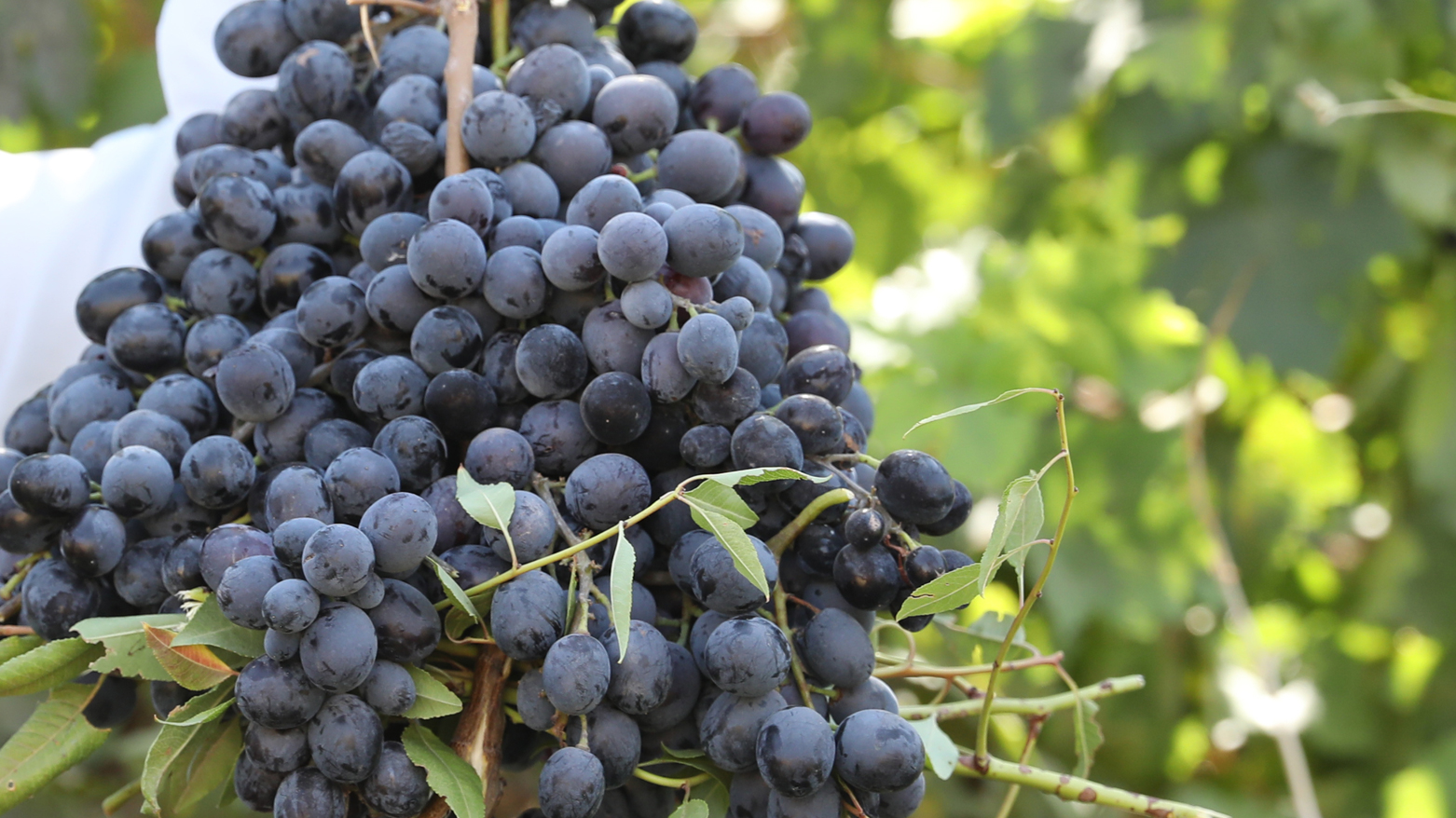Systemic Neglect Leaves Eastern Kurdistan's Grape Harvest Rotting on the Vine
Farmers in Eastern Kurdistan's Sardasht face severe losses as their renowned black grapes rot without buyers, lacking cold storage and fair markets. Middlemen exploit the crisis, buying cheap and reselling at high profits while growers receive no government support.

ERBIL (Kurdistan24) – In Eastern Kurdistan’s (Northwestern Iran) Sardasht, farmers are facing mounting difficulties in marketing their agricultural products—particularly the region’s world-renowned black grapes, locally known for their rich flavor and high quality. Despite Sardasht’s reputation as one of the wealthiest fruit-producing areas in Iranian Kurdistan, local orchard owners suffer severe economic losses due to the absence of cold storage facilities and wholesale markets.
Sardasht’s fertile lands produce a wide range of fruits including pomegranates, figs, peaches, and most notably, black grapes that are celebrated across Iran and Eastern Kurdistan for their exceptional sweetness and texture. Yet, farmers in this region say that the absence of basic infrastructure—such as cold storage units and local markets (known as ‘alwe’)—has forced them to sell their products at unreasonably low prices to intermediaries who reap most of the profit.
As a result, many growers are compelled to sell their crops directly from their orchards at discounted prices, unable to preserve them until market demand rises. “People here can’t do anything,” said Idris Qaderian, a fruit vendor from Sardasht to Kurdistan24. “Buyers come, set a cheap price, and take the produce to other cities where they sell it for higher profits. Farmers are the ones who suffer. If we had a local marketplace or a proper distribution system in Sardasht, it would be far better than being forced to sell cheaply in the orchards.”
Hawdi Hamzayi, an orchard owner, described the situation as dire, saying farmers have no choice but to sell their harvests at half their value. “We are forced to sell our grapes below cost because there is no cold storage here. If we wait too long, the fruit will spoil. When we do sell to the markets, the brokers take advantage of us, buying cheaply and then selling at double the price,” he said.
Hamzayi lamented the lack of institutional support, adding that no government or agricultural body has stepped in to help farmers export their products or find sustainable ways to market them. “We receive no assistance from any authority to help send our produce outside the country, or even within Iran. If the government supported us in any way, the situation would be different. Right now, farmers are losing heavily, and many are even considering abandoning their orchards.”
Residents of Sardasht expressed growing frustration at the disorganized market system, which allows middlemen to manipulate prices. “Because there’s no organized pricing system, brokers sell Sardasht’s black grapes at extremely high prices to consumers, while paying farmers next to nothing,” said a local shopper.
A visitor to the city said he had wanted to buy Sardasht’s black grapes directly but was disappointed by the market chaos. “I wanted to buy black grapes from Sardasht because they’re famous for their quality,” he said. “But when I went to the market, I couldn’t find a trustworthy seller. I ended up buying from the orchards instead.”
Yaser Karimi, a local resident, explained to Kurdistan24, that despite Sardasht being the country’s hub for black grapes, ordinary citizens rarely benefit. “There’s no facility here to preserve the produce,” he said. “Middlemen come, buy grapes from farmers at the cheapest possible price, and then resell them elsewhere. But here in Sardasht, the price of our own grapes is extremely high. Even though we grow them ourselves, we make very little profit. In fact, sometimes we can’t even afford to eat our own grapes because the prices are so high.”
Karimi added that no local authority has intervened to regulate the market or ensure fair prices. “No one has asked how Sardasht residents can afford to buy their own produce. Believe it or not, many people here go an entire year without eating black grapes unless someone gives them as a gift. Only a few can afford to buy them.”
Mahsa Radi, a tourist visiting Sardasht, shared her experience of traveling to the city specifically to buy its famous grapes. “I came here with my friends to buy black grapes because Sardasht is known as the center of grape cultivation,” she told Kurdistan24. “I don’t like buying from other cities because I can’t be sure of the quality. Here, I can see the produce myself and confirm its freshness. I recommend everyone come here to buy them directly because the grapes are truly natural and unique.”
The main challenge facing Sardasht’s fruit sector, particularly its black grape industry, is the total absence of a systematic market structure, cold storage facilities, or organized collection centers. Farmers emphasized that local officials and agricultural departments have shown little concern for their plight, leaving them vulnerable to exploitation by brokers.
Without proper storage, distribution networks, or government-supported trade programs, the region’s famed produce risks rotting in the orchards. “All the profits go to the middlemen,” one farmer concluded. “They come to our orchards, buy our hard work for cheap, and leave us with nothing.”